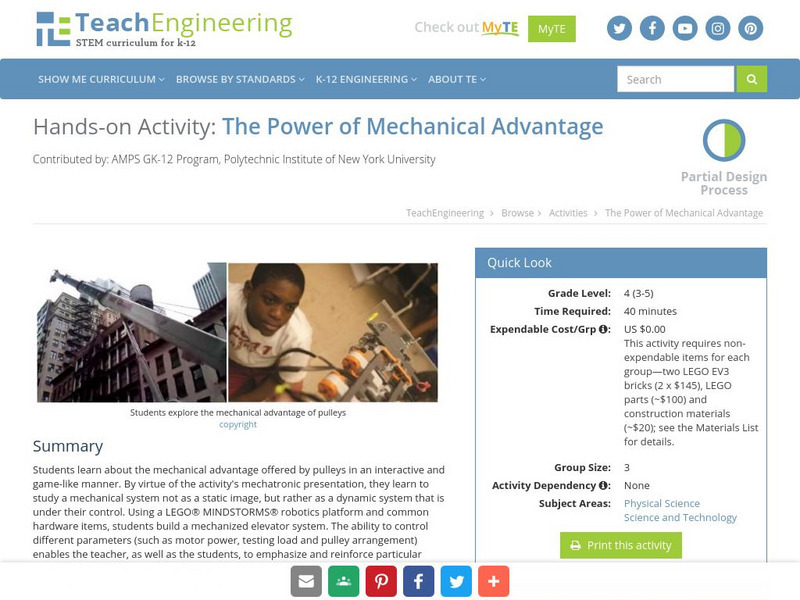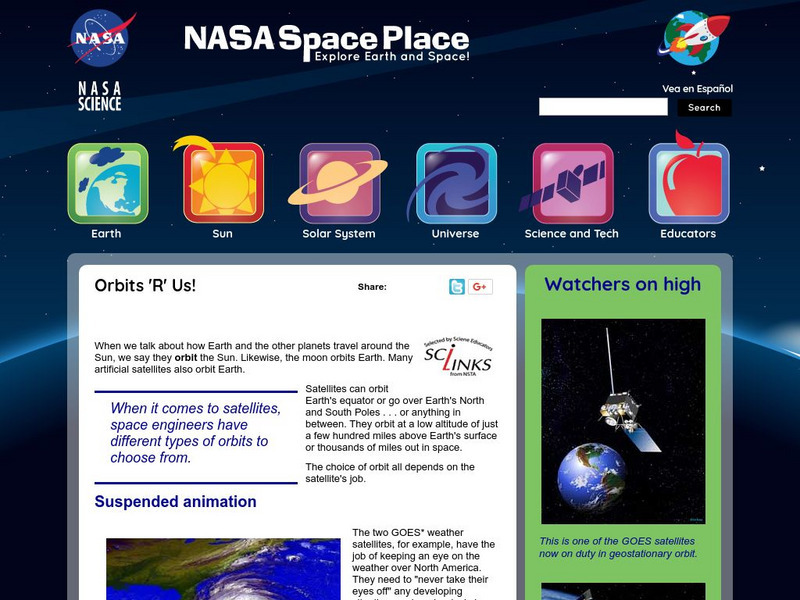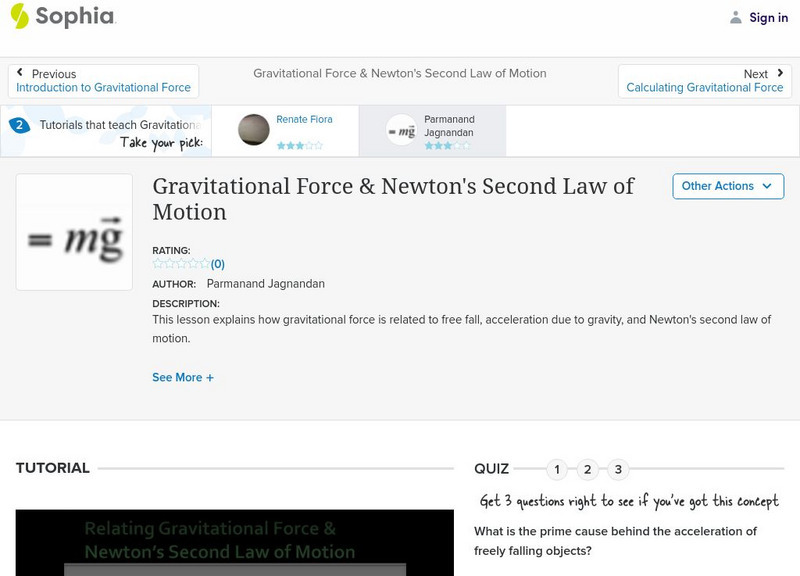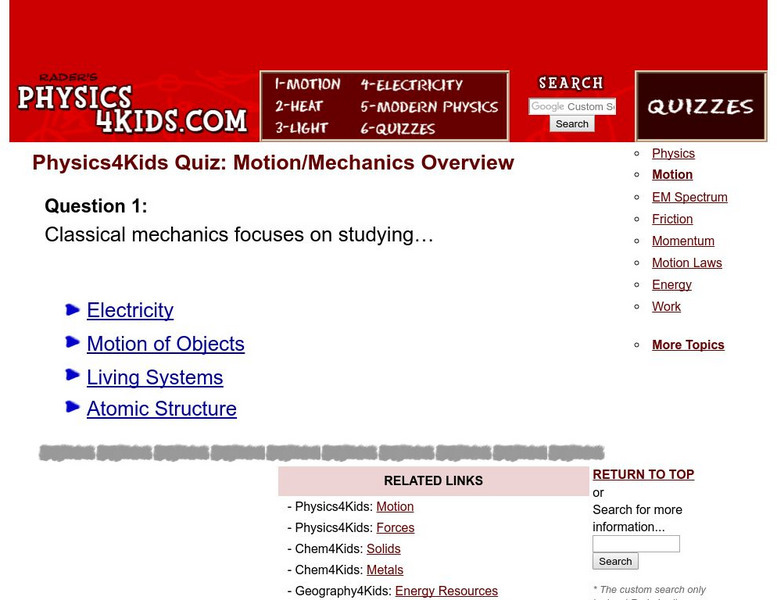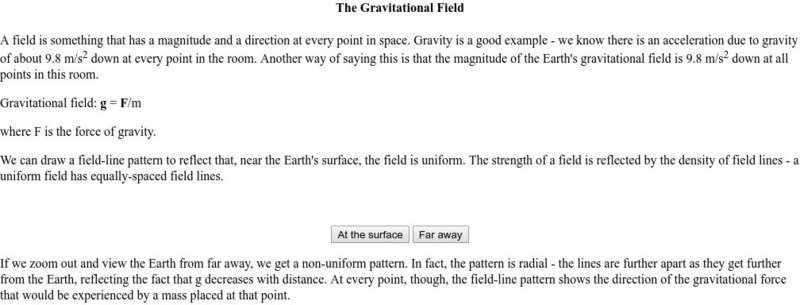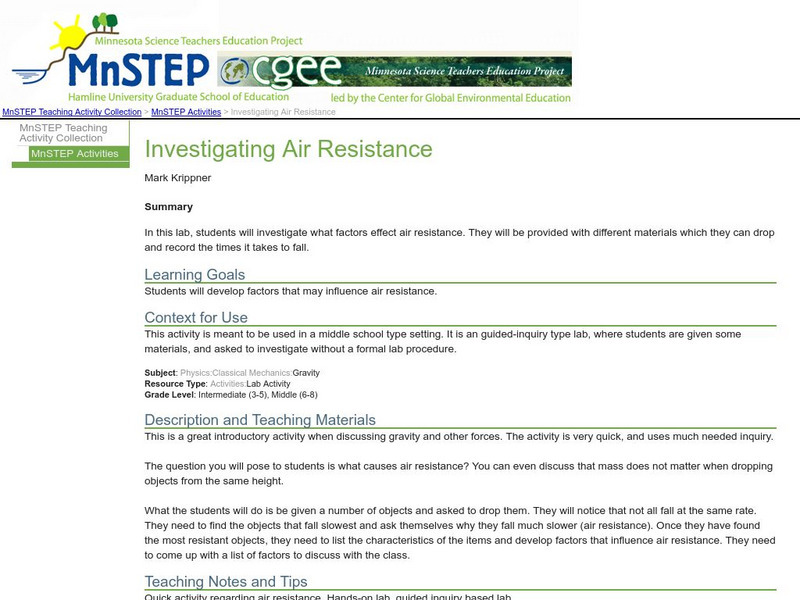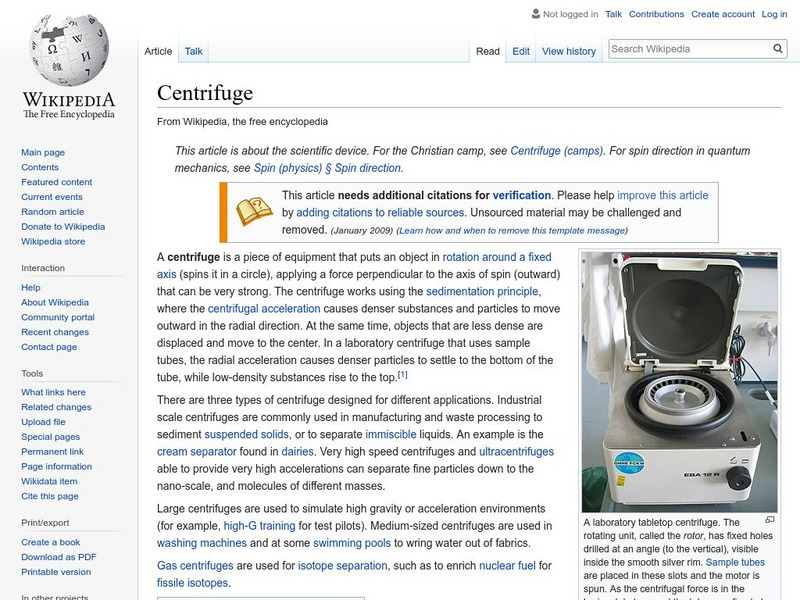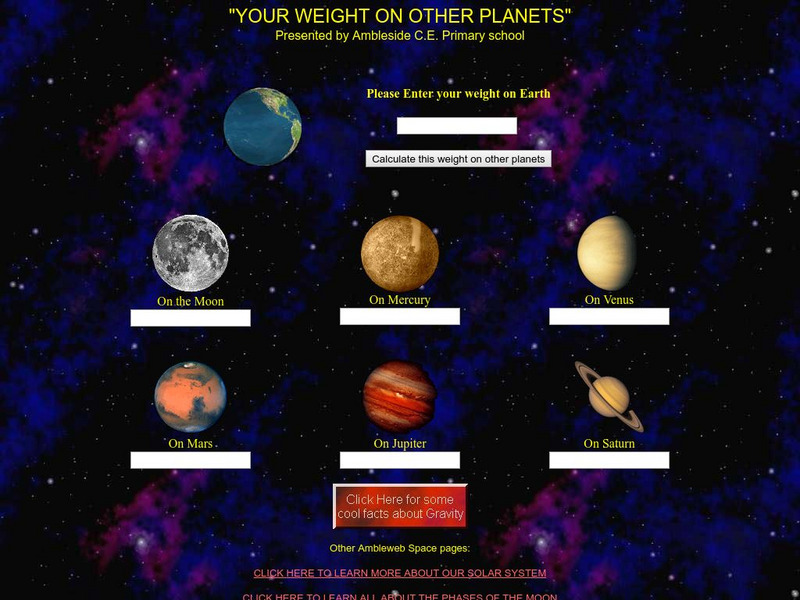Hi, what do you want to do?
TeachEngineering
Teach Engineering: The Power of Mechanical Advantage
Students learn about the mechanical advantage offered by pulleys in an interactive and game-like manner. By virtue of the activity's mechatronic presentation, they learn to study a mechanical system not as a static image, but rather as a...
Exploratorium
Exploratorium: Skateboard Science
This site is on the science and art of skateboard design, including equipment, tricks, glossary of terms, and a live webcast of a skateboard performance.
TED Talks
Ted: Ted Ed: How Does Work, Work?
In this video, Peter Bohacek explains the interplay between work and power and how it can be seen in the functioning of a clock. [4:31] Followed by a short quiz and a list of additional resources to explore.
NASA
Nasa: The Space Place: Orbits 'R' Us
Learn about how Earth orbits the sun and how satellites orbit the Earth. Discover the different types of satellites such as GOES and POES and what they are used to monitor.
Exploratorium
Exploratorium: Science Snacks: Hand Held Heat Engine
Can you defy the force of gravity by making liquid in a toy rise and fall without turning it over? This experiment will show you how to use hand boiler that uses temperature and pressure to move liquid into the top chamber.
Bill Nye
Bill Nye: Penny Droplets
Try this at-home science experiment to learn about the forces of gravity, cohesion, and adhesion.
Science and Mathematics Initiative for Learning Enhancement (SMILE)
Smile: Center of Gravity Lab
This Illinois Institute of Technologysite provides a lab activity in which learners find the center of gravity of a box which has nonuniform weight distribution. Complete with directions and discussion questions; answers provided.
PBS
Pbs Teachers: Submarine Race Experiment
Balance the force of gravity with the force of the expanding gasses created by mixing baking soda and vinegar. Create a soda bottle submarine that sinks to the bottom of the bathtub and then rises back to the surface.
Sophia Learning
Sophia: Gravitational Force & Newton's Second Law of Motion
This lesson explains how gravitational force is related to free fall, acceleration due to gravity, and Newton's second law of motion.
PBS
Pbs Learning Media: Defying Gravity
Students are asked how acceleration, mass, momentum and velocity are involved in mountain boarding. [0:32]
Physics4kids
Physics 4 Kids: Motion/mechanics Overview Quiz
Take this ten question multiple choice quiz on motion and mechanics.
Physics Classroom
The Physics Classroom: 1 D Kinematics: The Big Misconception
An introduction to the ideas behind the misconception and misunderstanding of why all objects accelerate at the same rate. This explanation involves the concepts of force and mass.
Boston University
Boston University: The Gravitational Field
Defines what a gravitational field is, its value, and how to calculate it. Field-line patterns are also drawn and explained.
Concord Consortium
The Concord Consortium: Molecular Workbench: Centrifugal Reaction Force
Adjust variables to see how a ball is affected by gravity while traveling around a circle.
Wikimedia
Wikipedia: The Black Hole
This site examines the black hole as an object in astrophysics. Delve into this comprehensive resource that covers this concept from its history, to qualitative physics, the reality of black holes, mathematical physics and more.
Science Education Resource Center at Carleton College
Serc: Investigating Air Resistance
In this lab, students will investigate what factors affect air resistance while introducing gravity and other forces.
NASA
Nasa: Beginner's Guide to Aerodynamics
Includes exhaustive information and a wealth of activities pertaining to aerodynamics and the physics of flight.
TeachEngineering
Teach Engineering: What Makes Airplanes Fly?
Young scholars begin to explore the idea of a force. To further their understanding of drag, gravity and weight, they conduct activities that model the behavior of parachutes and helicopters. An associated literacy activity engages the...
BBC
Bbc: Gcse Bitesize: The Life Cycle of a Star
This lesson focuses on the formation and life cycle of stars. Stars form when enough dust and gas clump together because of gravitational forces. Nuclear reactions release energy to keep the star hot. Some stars grow larger over time....
Woods Hole Oceanographic Institution
Whoi: What Causes Tides?
The Woods Hole Oceanographic Institute provides an in-depth but easy to read article on the role of the moon and the sun in respect to tides.
Wikimedia
Wikipedia: Centrifuge
Wikipedia provides detailed information and history on centrifuges in scientific research and industry, including its importance in making nuclear weapons.
Physics Classroom
The Physics Classroom: Newton's Laws: Elevator Ride Interactive
Have you ever felt that queasy feeling in a moving elevator? Explore the physics behind the sensations of weightlessness and weightiness. Teacher notes and a downloadable handout are also provided.
Ambleside Church of England Primary School
Ambleside c.e. Primary School: Your Weight on Other Planets
Students enter their weight here on Earth, and find out how much they would weigh on the moon and other planets.
CK-12 Foundation
Ck 12: Interactive Physics for High School
This digital textbook covers core physics concepts and includes interactive features, real world examples, videos, and study guides.





